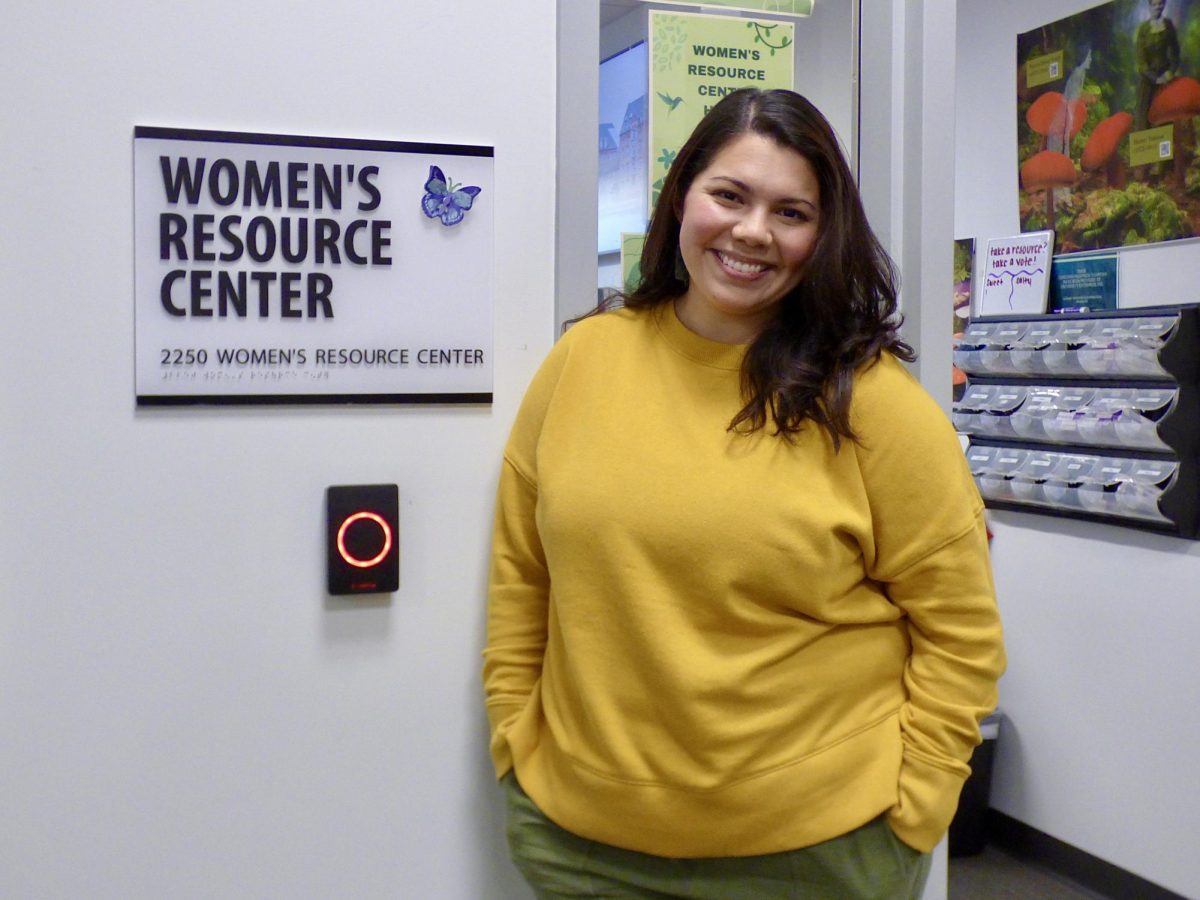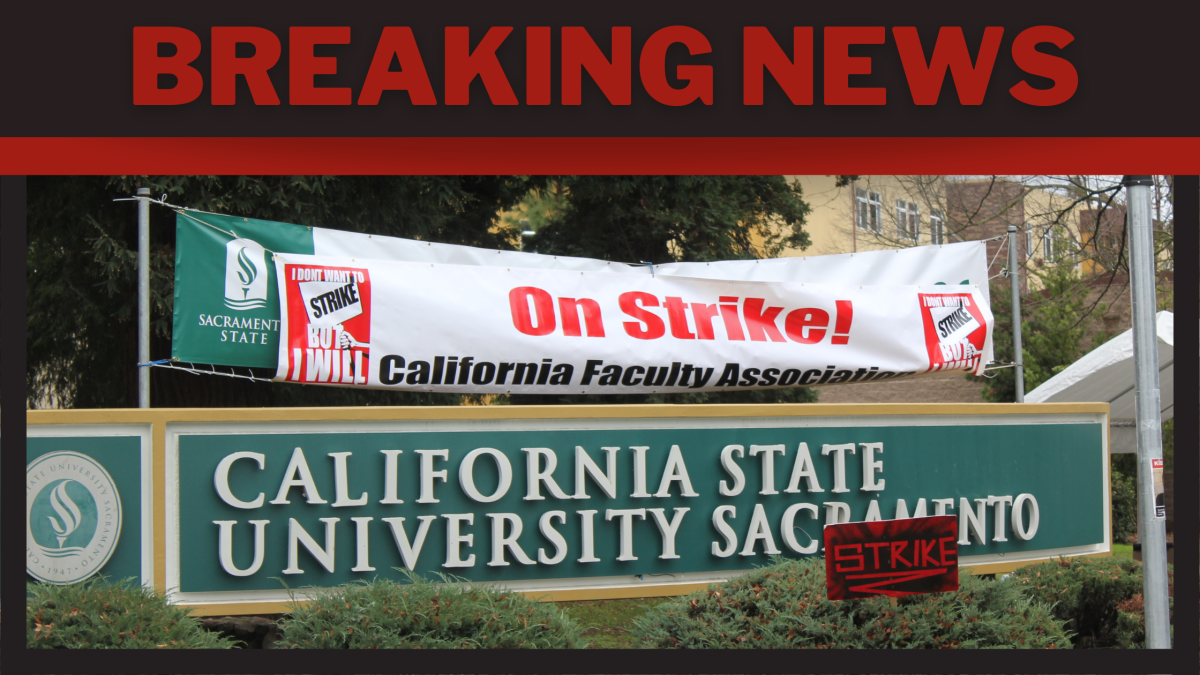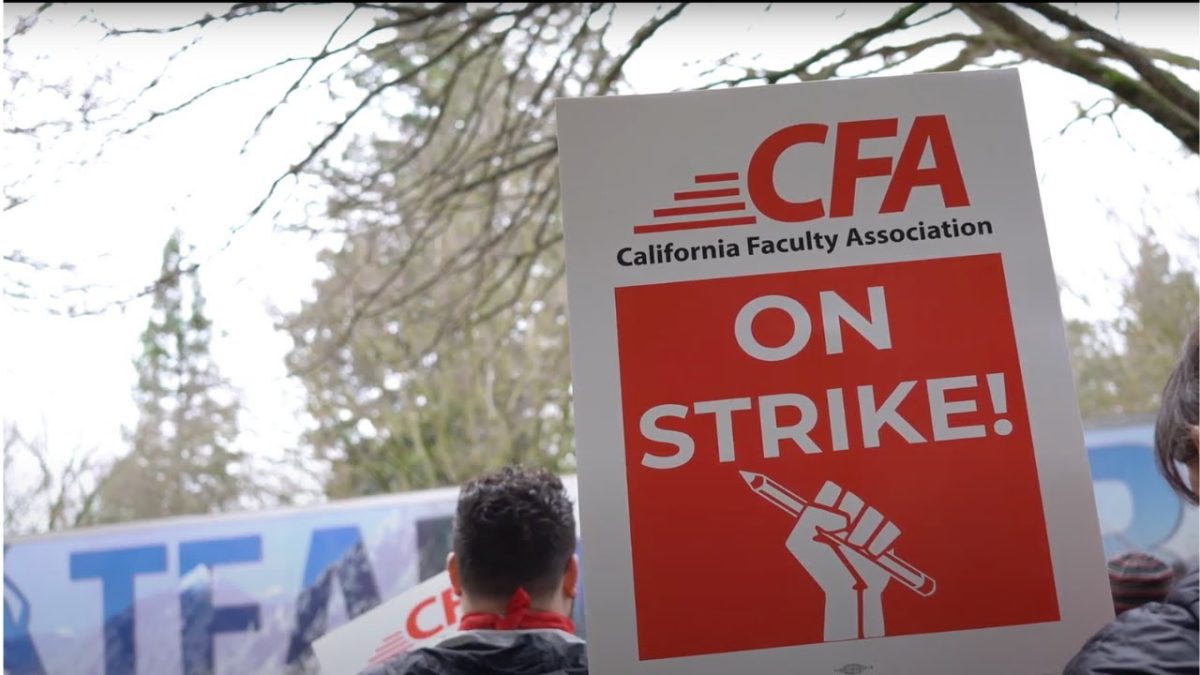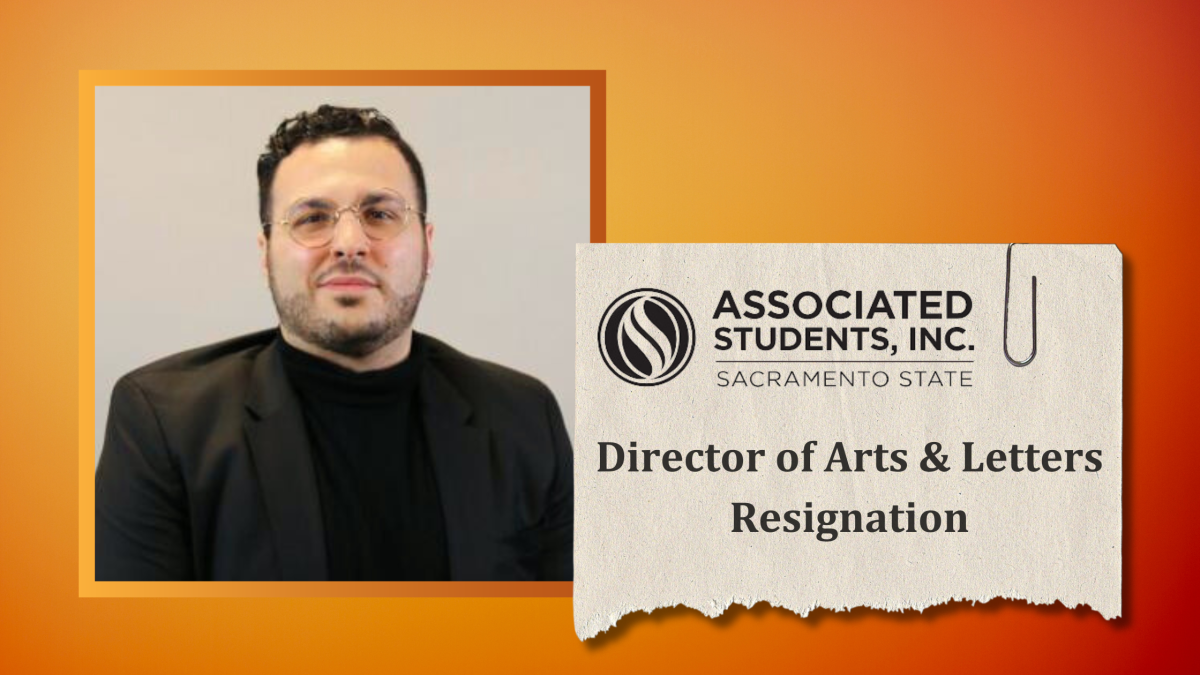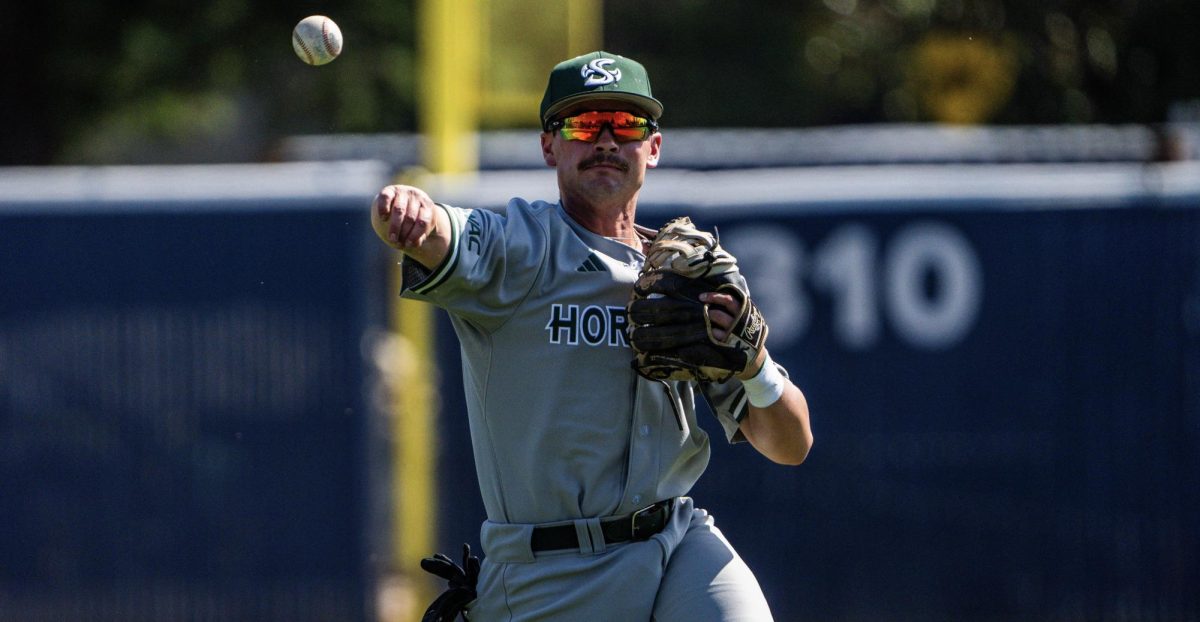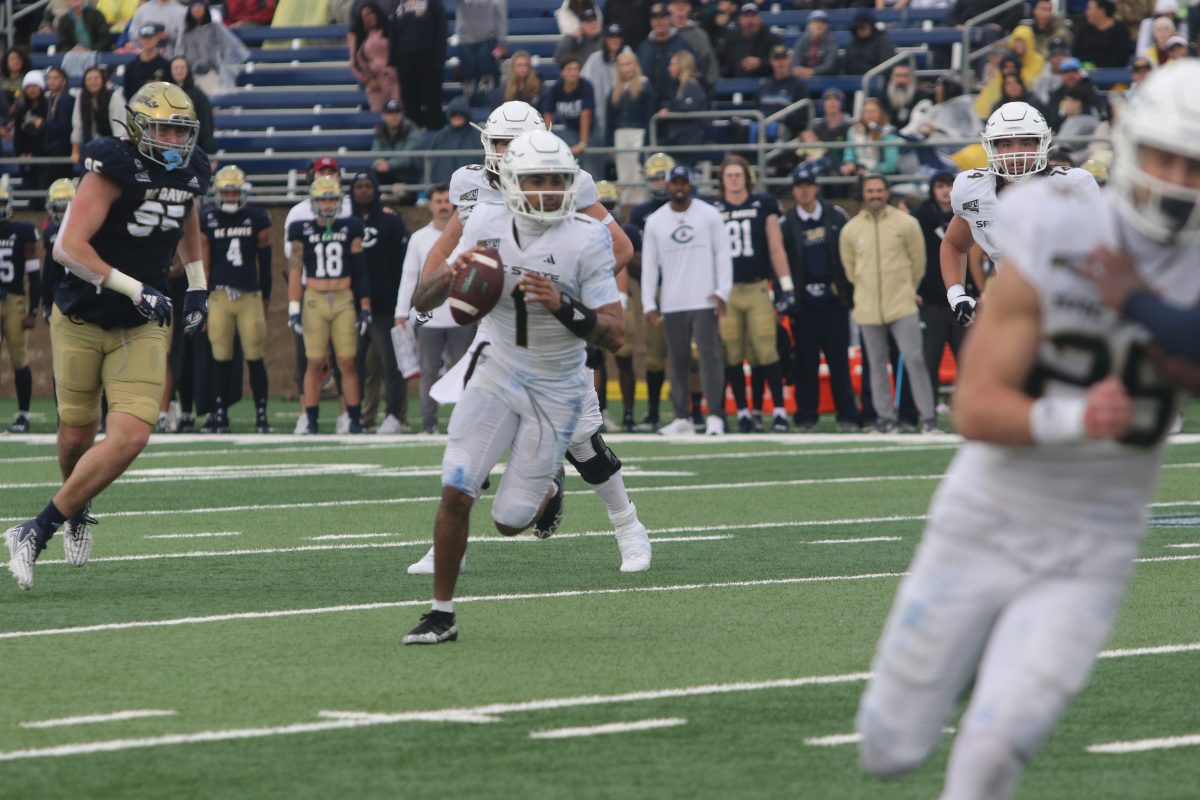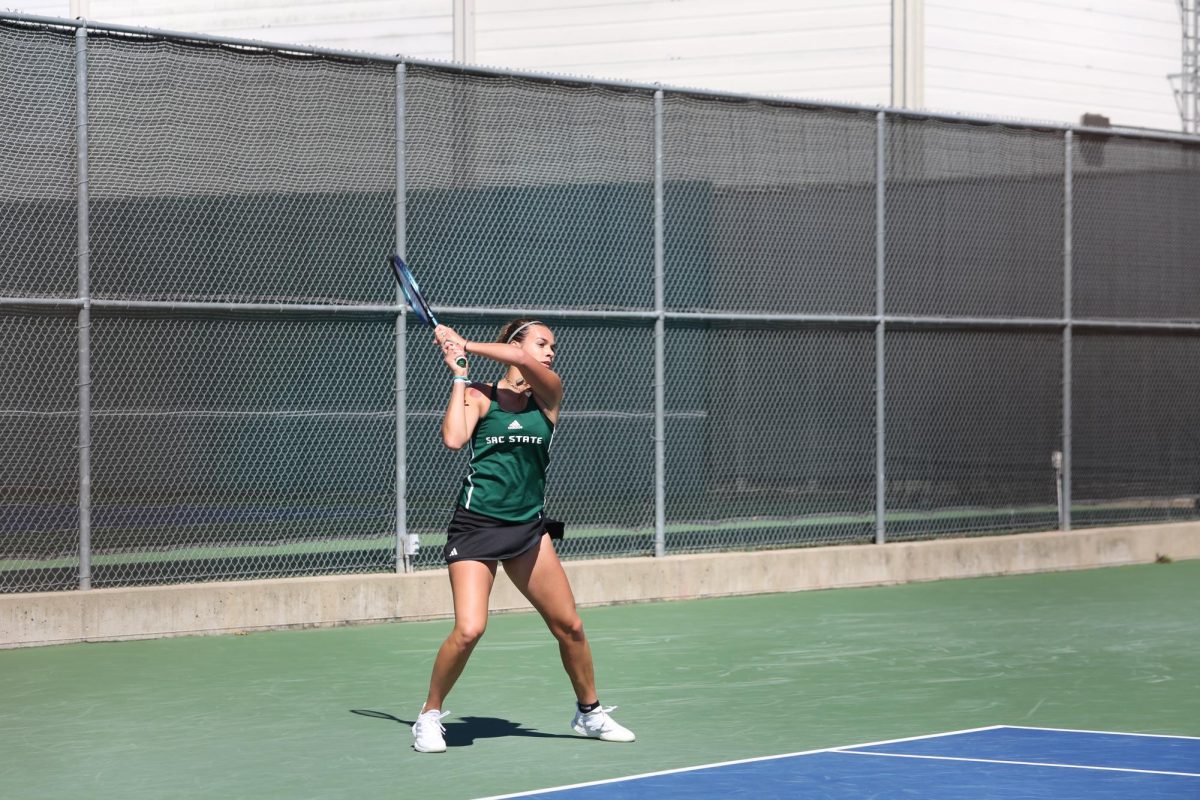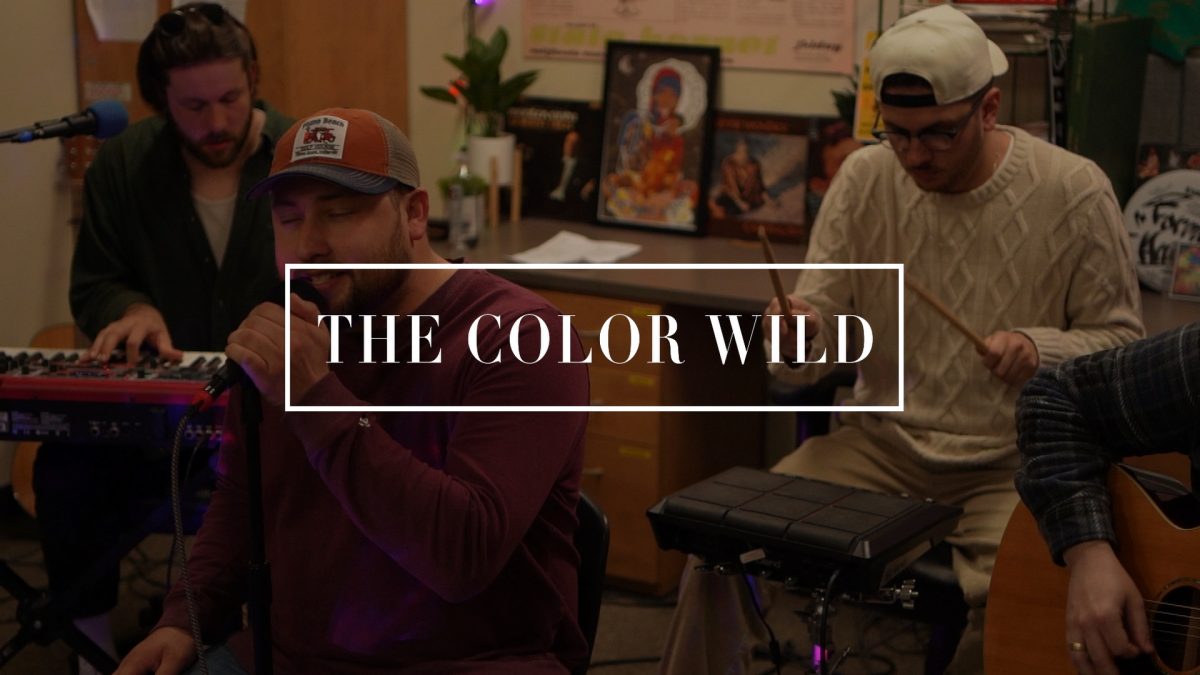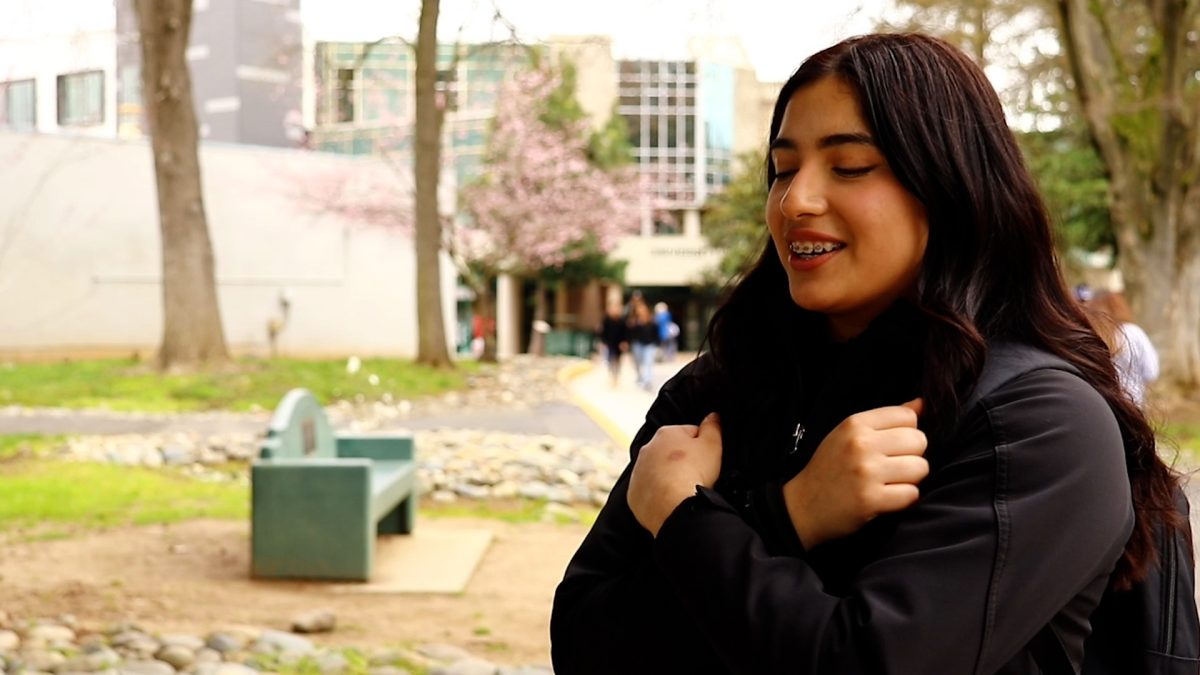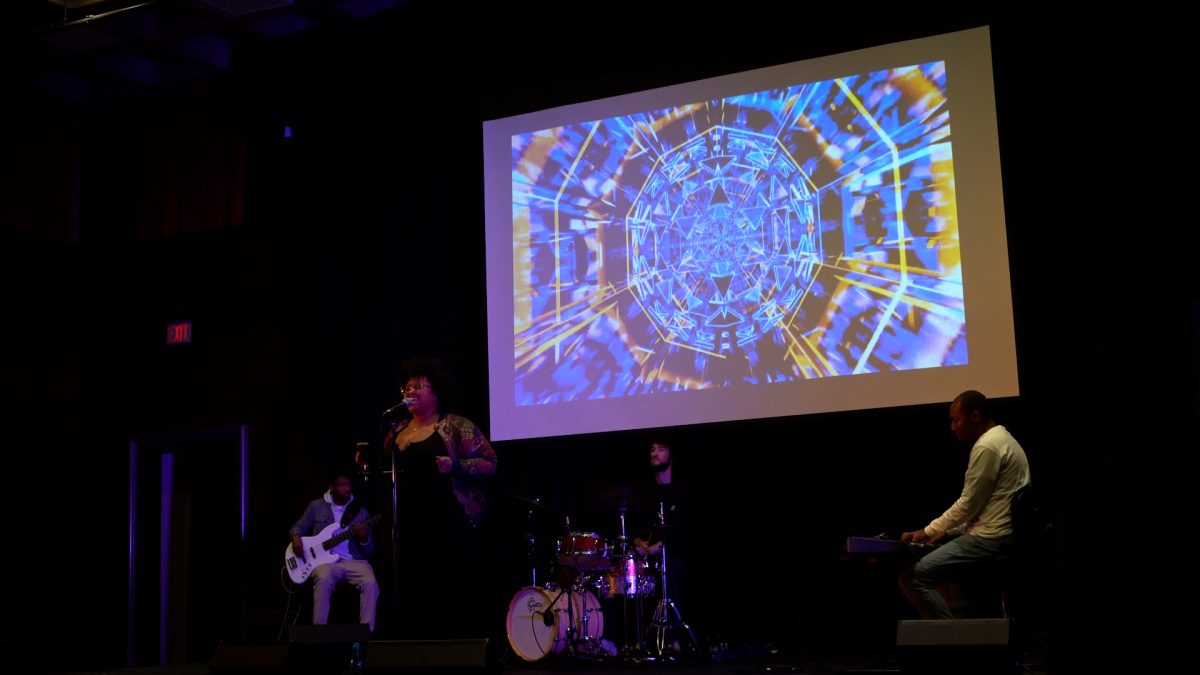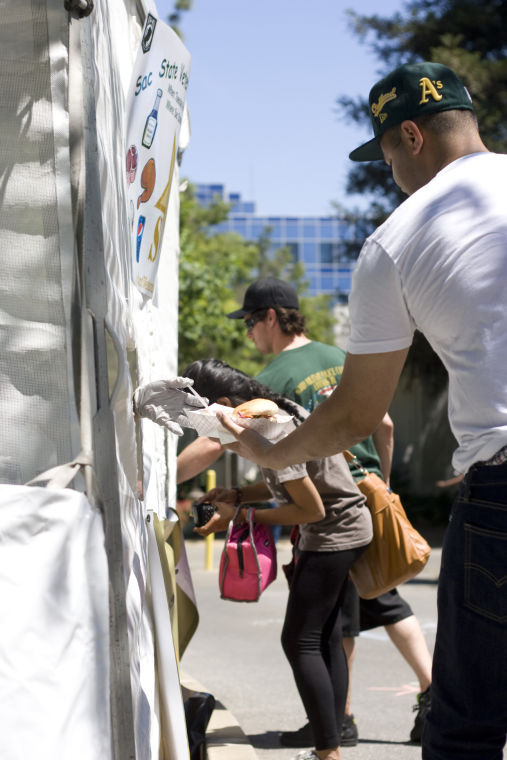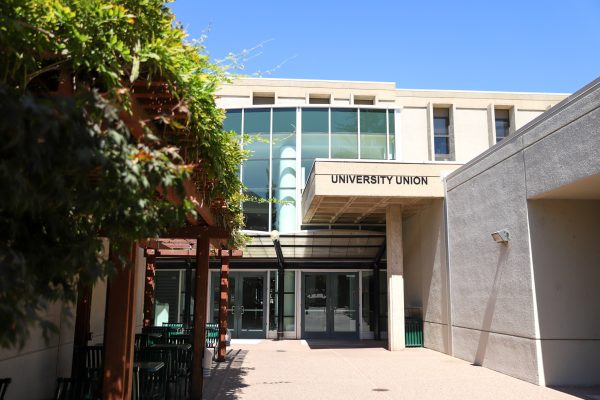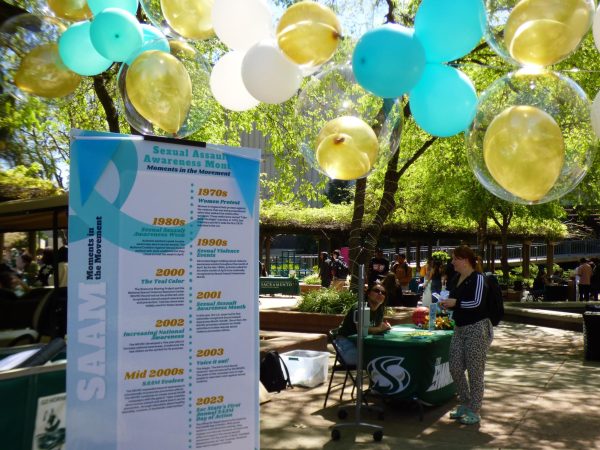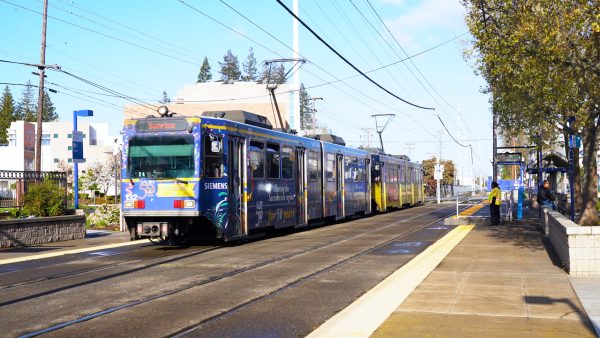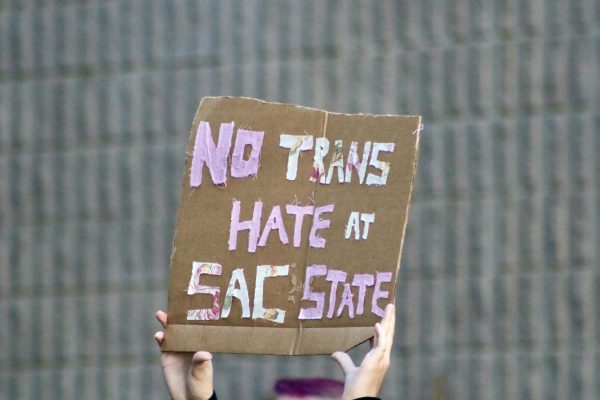Veterans ease transition with events on campus
The Sac State Veterans BBQ Fundraiser took place at the quad on Tuesday, serving teriyaki flank steak and teriyaki chicken to students in order to help raise money towards graduation fees for veteran students
May 7, 2014
Returning home from war after years of military experience can be difficult, confusing and frustrating.
A group of student war veterans at Sacramento State have come together in the hopes of easing that transition through several different campus related efforts, including a new class specifically designed to help first-year veteran students adjust to civilian life.
Sac State Professor Beth Erickson created the pilot program of 20 students last fall to help returning veterans apply leadership skills learned in the military to their new lives.
As part of the program, experienced veteran students can provide mentorship to first-year veteran students. The pilot class contained both types of veterans, and the first-years can return the favor by mentoring the next students entering the following semester.
In connection with the Veterans Leadership Initiative, the class allows for self-exploration through class trips to the outdoors. Erikson said the excursions are a vital part of the learning experience because it provides an element of life veterans can relate to strongly.
“When we do all these trips, we create the platoon they are missing,” Erkison said. “When you get out of the military, you have had this camaraderie for years sometimes, and you really miss that. What this does is give them a level of support. They know we have their back. They know we are here for them. And they know they are there for each other.”
According to a Congressional Research Service study in early 2014 by Information Research Specialist Hannah Fischer, there are more than 2.3 million American veterans of the Iraq and Afghanistan wars, and at least 20 percent of Iraq and Afghanistan veterans have post-traumatic stress disorder or depression.
While many veterans may not have PTSD, readjusting to a life completely different than one they are accustomed to can still provide feelings of isolation and helplessness.
Erickson said her class has already saved a veteran woman from dropping out of college because of the encouragement and support from her mentor.
After finishing the one semester class, the students are encouraged to volunteer the following semester to help mentor students in the next class and create fundraiser events for either the class or for the Student Veteran Organization, a Sac State club created in 2007 by three veteran students.
Sean Johnson, a 34-year-old senior communications studies major, has been an active leader for the club and as a member of the pilot class. In spring 2013, he was determined to raise veteran funds by hosting a barbeque on campus, a feat never attempted by a campus club in eight years.
It took three semesters of discussions and paperwork with four different Sac State departments and the county to ensure the food was sanitary and followed regulations.
Johnson said his club stumbled through the process because campus officials did not know how to do it initially.
The final paperwork was lost at the last minute as University Enterprises Inc. and a department in Lassen Hall both said the other was in charge of processing it.
Despite the many bureaucratic challenges, the Veterans Club bonded together and paved the way for change, as Johnson’s vision finally came to fruition on April 29.
Even though the event did not garner as many customers as hoped, Johnson said they broke even and are encouraged tremendously by how it turned out.
“It feels like a victory,” Johnson said while serving customers a plate of barbecued chicken. “It has taken us three semesters and it all started with just a proposal. We had to fight the system and we won.”
Johnson plans on creating an instructional template of the process in the hopes the culture will change, as other clubs will be encouraged to create its own barbeque fundraisers on campus.
Sac State senior accounting Major Francis Arriola served as a chef in the army and as an influential member of the 10 veterans who contributed to the barbeque.
The 37-year-old said he did not know where the Veteran’s Center was when he first came to Sac State. Reflecting on those feelings of confusion, he joined the pilot class to mentor other veterans and help provide an outlet of support.
He said the program exceeded his expectation and provides a great resource for a group about 10 years older than most students on campus. Being around individuals with similar experiences was weird for Arriola at first, but now he openly embraces it.
“We all met in that class, yet last night we were acting like we grew up with each other,” Arriola said while referencing the previous evening of barbecue preparations.
The class has already expanded to 25 students and will continue to grow. There are about 800 to 1,200 veterans on campus and Erikson said it is crucial to get as many involved as possible.
“Think about it,” Erikson said. “They have to negotiate two systems. On top of the school system they have to negotiate the federal system to get GI bill and benefits, so they are going to have to do all of this on top of coursework to make ends meet. And a lot of them have families too. They are pulled in every direction.”






